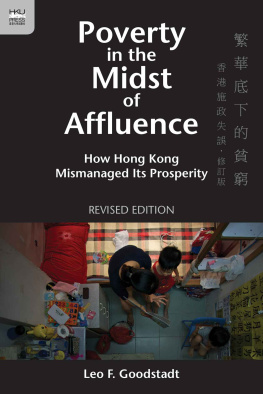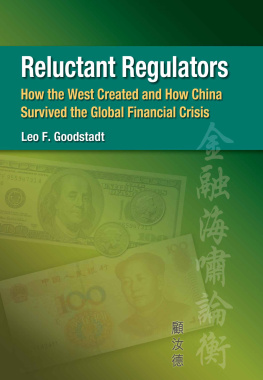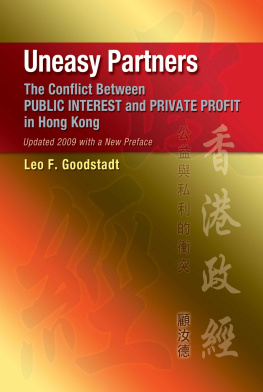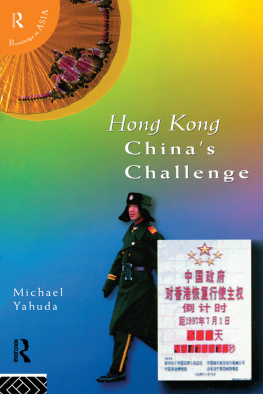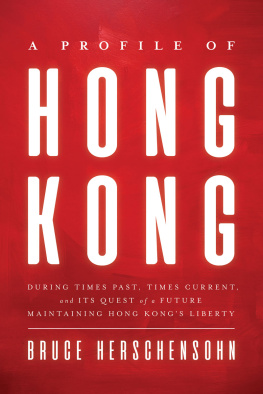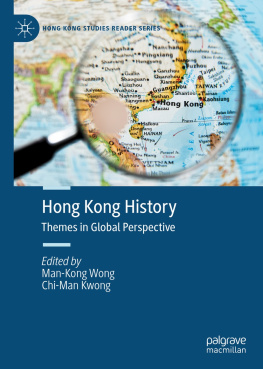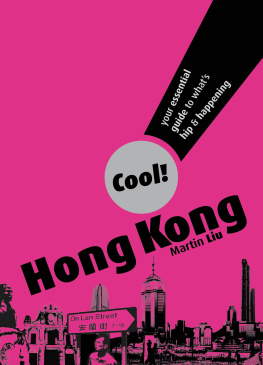Leo F. Goodstadt - Poverty in the Midst of Affluence: How Hong Kong Mismanaged Its Prosperity
Here you can read online Leo F. Goodstadt - Poverty in the Midst of Affluence: How Hong Kong Mismanaged Its Prosperity full text of the book (entire story) in english for free. Download pdf and epub, get meaning, cover and reviews about this ebook. year: 2014, publisher: Hong Kong University Press, genre: Politics. Description of the work, (preface) as well as reviews are available. Best literature library LitArk.com created for fans of good reading and offers a wide selection of genres:
Romance novel
Science fiction
Adventure
Detective
Science
History
Home and family
Prose
Art
Politics
Computer
Non-fiction
Religion
Business
Children
Humor
Choose a favorite category and find really read worthwhile books. Enjoy immersion in the world of imagination, feel the emotions of the characters or learn something new for yourself, make an fascinating discovery.
- Book:Poverty in the Midst of Affluence: How Hong Kong Mismanaged Its Prosperity
- Author:
- Publisher:Hong Kong University Press
- Genre:
- Year:2014
- Rating:4 / 5
- Favourites:Add to favourites
- Your mark:
Poverty in the Midst of Affluence: How Hong Kong Mismanaged Its Prosperity: summary, description and annotation
We offer to read an annotation, description, summary or preface (depends on what the author of the book "Poverty in the Midst of Affluence: How Hong Kong Mismanaged Its Prosperity" wrote himself). If you haven't found the necessary information about the book — write in the comments, we will try to find it.
Hong Kong is among the richest cities in the world. Yet over the past 15 years, living conditions for the average family have deteriorated despite a robust economy, ample budget surpluses, and record labour productivity. Successive governments have been reluctant to invest in services for the elderly, the disabled, the long-term sick, and the poor, while education has become more elitist. The political system has helped to entrench a mistaken consensus that social spending is a threat to financial stability and economic prosperity. In this trenchant attack on government mismanagement, Leo Goodstadt traces how officials have created a new poverty in Hong Kong and argues that their misguided policies are both a legacy of the colonial era and a deliberate choice by modern governments, and not the result of economic crises. This provocative book will be essential reading for anyone wishing to understand why poverty returned to Hong Kong in this century.The book has been thoroughly revised and updated for this new, paperback edition.Leo Goodstadt has identified the New Poor as those made vulnerable through diminishing access to essential services and opportunities. The culprits are misguided policies, and the callous and uncaring decisions of those in power. This compelling critique carries weight and demands a response.Christine Fang, Former Chief Executive of The Hong Kong Council of Social ServiceThis is a critical reflection on Hong Kongs path of social development and a most discerning analysis of the Third World mentality espoused by the government and the business community in the area of social welfare.Lui Tai-lok, Chair Professor of Hong Kong Studies, The Hong Kong Institute of EducationWelfare spending was like pouring sand into the sea to reclaim land, thought one Chief Executive. Governments restrained social spending based on that skewed view . . . This book is meticulously researched and painfully insightful. It is a masterly chronicle of Hong Kongs social welfare policy.Anna Wu, Non-Official Member of the Executive Council, HKSAR
Leo F. Goodstadt: author's other books
Who wrote Poverty in the Midst of Affluence: How Hong Kong Mismanaged Its Prosperity? Find out the surname, the name of the author of the book and a list of all author's works by series.

